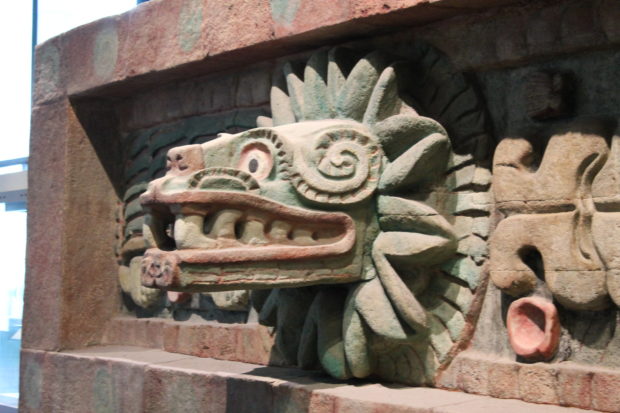
By Leonard Adame
My grandfather Trinidad and his family came to the United States in 1928 or so. He wanted nothing to do with the Mexican Revolution. So he packed up his two cars used as taxis in Chihuahua with his wife, kids and what food and clothes they could carry and drove to El Paso, Texas. The trek, not long by today’s standards, was hard. Unpaved roads were narrow, curvy and dangerous. Cars often had to back up to let another through.
Finally, Buckeye, Arizona, was the end of the line. There, in a dirt floor line shack, the family spent the winter. My father, to keep out the sleet, made glue with flour and water, shredded newspapers, wet them with glue and patched the holes to keep out the storms.
My father, Trinidad Jr., always a good and ready fighter, entered prizefighting contests, figuring he’d use his winnings, watches, shirts and other trinkets to trade for food. He won all of his fights and later trained with former light heavyweight champion John Henry Lewis. But my grandmother refused to let him box professionally, afraid he’d end up punch drunk and on skid row.
Later, my grandfather scored a job with the railroad, made some money and asked to transfer to California. The family ended up in Berkeley and then finally here in Fresno.
My grandfather had no choice but to come to this country. It was that or be slaughtered by rebels or the Federales.
He was a cultured man who read American and Mexican newspapers. He also learned, to his great disappointment, that to survive in the United States he had to become politically placid and culturally invisible. To maintain dignity and soothe his soul, he played the guitar and mandolin, sang beautifully drunk or sober, and taught his daughter Carmen to play and sing. He also pragmatically demanded his sons finish high school and that they work hard.
My father was a fledgling chef, my Uncle Gus was a watchmaker and my Uncle Tony was a jukebox repair man. Life was manageable. They bought a house and during the Depression grew vegetables and raised chickens and pigs, something they’d always done in Mexico.
Even so, bigotry and racism came at them like maddened hornets. My father’s boxing skills served him well as he dispatched more than a few who thought he was just a “skinny greaser” kid.
There’s more of my history, of course. But I want to say this: The family was seeking freedom and peace, so they came to where they thought they could find it only to learn that to find freedom, one had to give up the liberty of being culturally assertive, of being able to function among White people as equals. From the 1920s through the 1960s, they suffered the slings and arrows of institutional racism.
Columbus Day is just over the horizon. In grade school, I learned Columbus sailed “the ocean blue” and went where “no man had gone before,” or so my teacher would have had me believe. I truly believed this man was a savior, a man whose actions ultimately led to a free America.
Fast forward to my college years, just after Martin Luther King, Jr.’s civil rights era. In my multicultural classes, Columbus morphed into a greedy, arrogant, racist and delusional treasure seeker obsessed with attaining title and power for one of the world’s most ruthless kingdoms. But it’s what followed in Columbus’ wake that is important, events that have been largely hidden or ignored by our public education system.
The man’s exploits ushered in one of the bloodiest epochs in world history. Millions of indigenous people, whose seers and sages had foretold the end of the world, in this hemisphere were doomed the moment the Taino Indians sited Columbus’ ships on the horizon. War, pestilence, famine, disease and genocide followed Columbus to this side of the world.
Yet what I’d learned is that because of this man’s adventures, we have enjoyed freedom (never fully defined). We have had the respect of other nations who wish to emulate our culture and government. Though never fully defined by my grade school teachers, the American Dream has always been available to all. And we have the Statue of Liberty to welcome anyone who desires to work freely and safely.
Hence, my grandfather decided to test that ineluctable theory: that in America, freedom would allow him to avoid los perros de la guerra. So he came North in search of La Libertad.
What he found was a colonialism that hadn’t lost its grip in the Americas, a European ensconced culture that demands classism and slaves, that demands more and more riches for the oligarchies and for the hatchet men that follow this government’s demands by endlessly destroying the rights of Latinos to live decent and safe lives.
Because of Columbus and the other bloody conquerors who followed, poor Mexicans and other Latinos have been forced to leave their homes to go North, only to find even more injustice. That was true in my grandfather’s time, and it’s true today.
Despite colonialist terrorism, he endured and survived. This is a testament to his indigenous resilience in the face of overwhelming odds, something that’s still true of contemporary Mexican immigrants.
Celebrate Columbus? Only those who don’t know the story of ruthless colonialism would do so.
*****
Leonard Adame has retired from teaching college English. He now plays drums in various bands, takes photographs, reads mystery novels to a fault and has published poetry in college anthologies. He most enjoys re-learning about human beings from his grandkids. Contact him at giganteescritor@hotmail.com.
